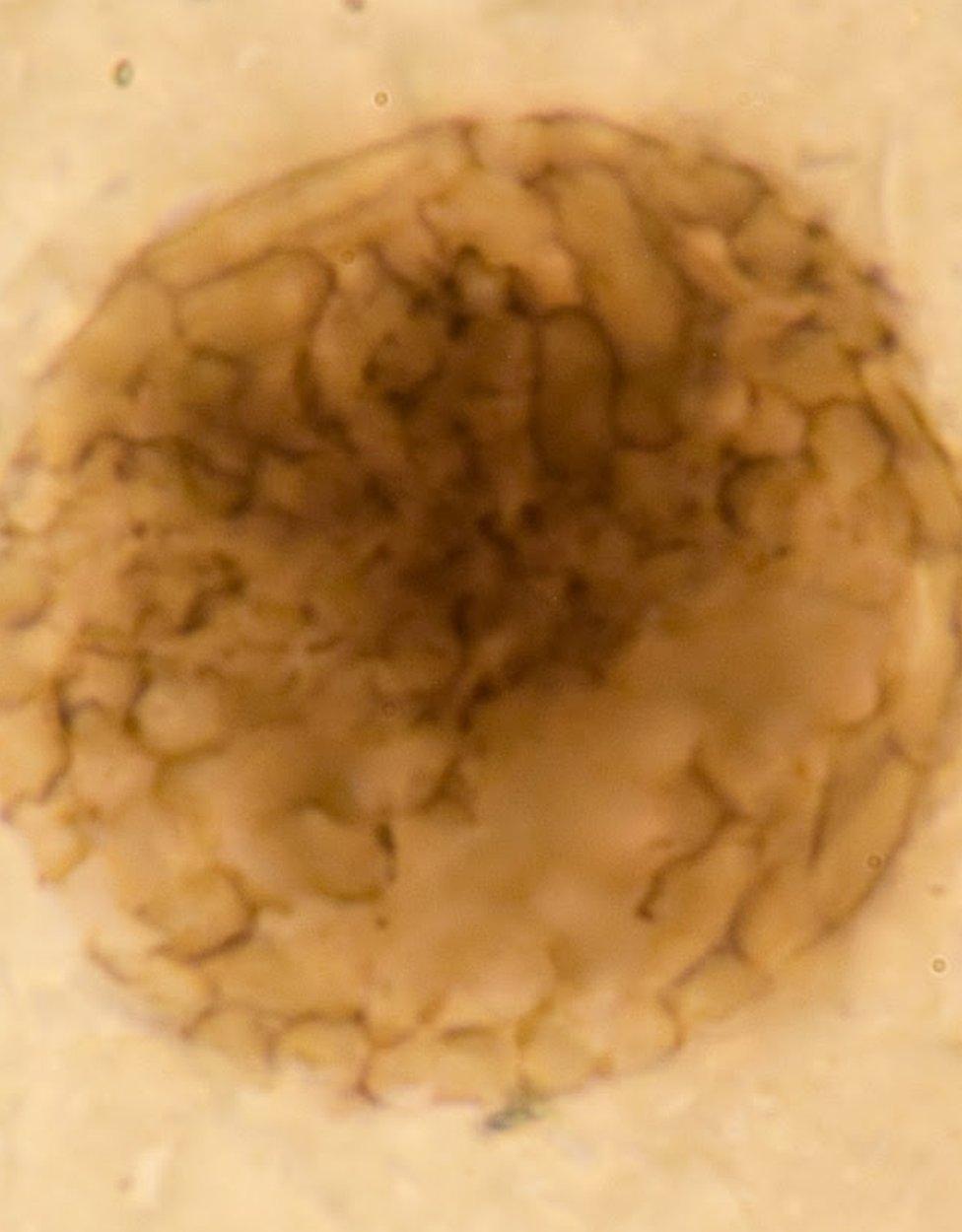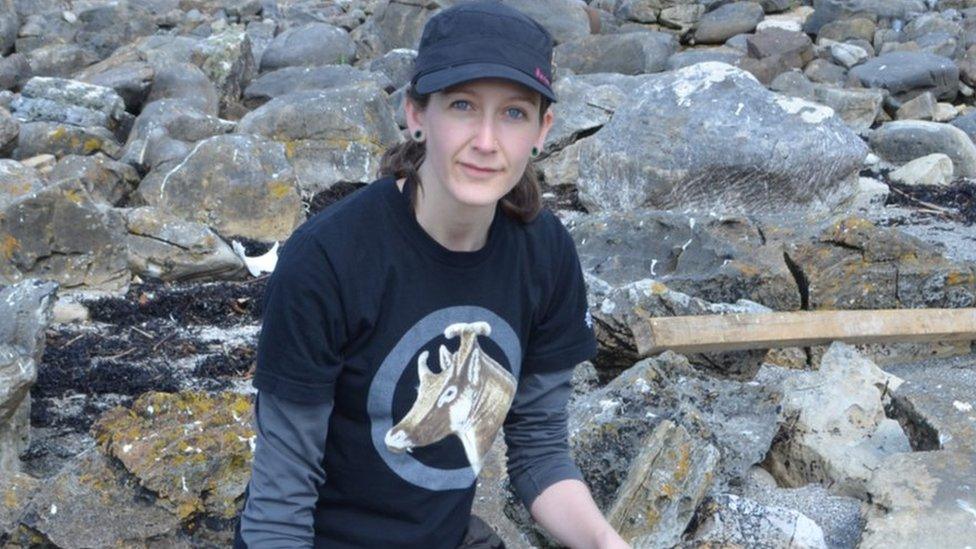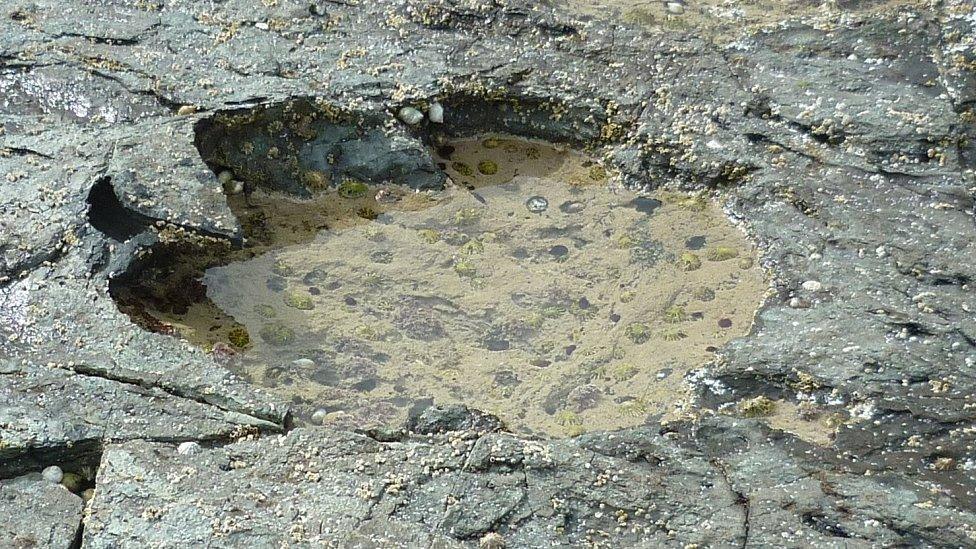Billion-year-old fossil found preserved in Torridon rocks
- Published

The microfossil was found in Torridon in Wester Ross
A billion-year-old fossil found in the Highlands could be the earliest multicellular animal recorded by science so far.
The microscopic fossil was discovered at Loch Torridon in Wester Ross by researchers led by the University of Sheffield and the US's Boston College.
Scientists said it could prove a new link in the evolution of animals.
Researchers could identify it contained two distinct cell types thanks to the fossil's "exceptional preservation".
The fossil gives a new insight into the transition of single-celled organisms to complex multicellular animals.
It has been named Bicellum Brasieri and is described in a new research paper published in Current Biology, external.

The microfossil has two distinct cell types

Prof Charles Wellman, of the University of Sheffield, said: "The origins of complex multicellularity and the origin of animals are considered two of the most important events in the history of life on Earth, our discovery sheds new light on both of these.
"We have found a primitive spherical organism made up of an arrangement of two distinct cell types, the first step towards a complex multicellular structure, something which has never been described before in the fossil record.
"The discovery suggests that the evolution of multicellular animals occurred at least one billion years ago and that early events prior to the evolution of animals may have occurred in freshwater like lakes, rather than the ocean."
The research team now hopes to examine other samples taken from the Torridon area's ancient rocks and find more fossils that could provide further insights into the evolution of multicellular organisms.
Related topics
- Published26 August 2020

- Published3 April 2018
